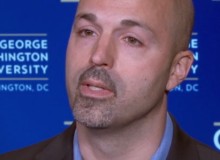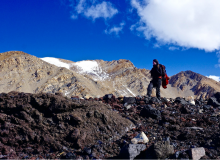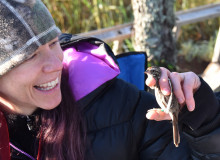Search
George Washington University
Monday, March 17, 2014
Amit Ronen of the GW Solar Institute talks about what it will take to make solar a viable option at scale, technologically and economically.
Tags: Solar Panels, photovoltaic, tax credits, photovoltaic panels, concentrated solar power
Blogger at Our Hungry Food
Monday, January 19, 2015
Lots of students care about organic food, but very few dive into the facts behind it. Even less get their hands dirty, literally.
Tags: permaculture, organic food, organic farming, small farms
Northwestern University
Sunday, February 07, 2021
A look at some of the women doing research in Antarctica and the lingering barriers that were set up to keep them out. Wyatt Mosiman reports for Medill.
Tags: antarctica, women, research, climate, climate change, climate science
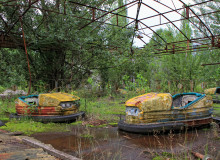
After the 1986 nuclear disaster, the environment surrounding Chernboyl has begun to recover. Despite persisting levels of radiation, the absence of humans makes the area an ideal location to study rewilding. (C. Colourin/CC0 Public Domain)
New York University
Wednesday, January 25, 2023
The site of one of the world’s largest nuclear accidents provides a unique setting to study radiation and the resiliency of nature.
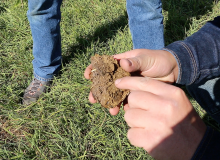
Tyrell McClain holds up a clump of soil on McGinley Ranch while discussing the high biodiversity under the surface of the ground on September 17, 2022. (Dr. Imani Cheers/Planet Forward)
Planet Forward Correspondent | George Washington University
Tuesday, October 04, 2022
An interview with Vice President of Ranch Operations at Turner Enterprises, Mark Kossler, about the benefits, challenges, and future of sustainable agriculture.
Tags: agriculture, ranching, soil, Biodiversity, bison, research, science, growing soil
SCCF marine laboratory director Eric Milbrandt (left) and research assistant Sierra Greene (right) collect water samples to help identify the drivers of harmful algal blooms in southwest Florida. (Sarah Anderson/MEDILL)
Northwestern University
Thursday, June 09, 2022
Excessive algae growth wreaked havoc on southwest Florida’s ecosystems, Sarah Anderson reports. A team of scientists is analyzing water samples to figure out what’s driving the blooms –– and how to mitigate them.
Tags: toxic algae, nutrient pollution, clean water
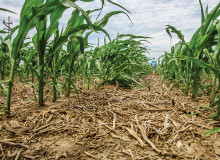
(Courtesy of No Till Farmer Magazine)
Northwestern University
Wednesday, February 08, 2023
Employing no-till practices, farmers in the Midwestern United States and Europe are finding profit and efficiency by opting to let the soil in their farms remain undisturbed prior to planting.
Tags: no-till, farming, Soil health
Planet Forward Correspondent | Northwestern University
Thursday, December 20, 2018
A global advisor to the UN Global Compact Cities Programme gives her take on the future of urban sustainability on local, national and global levels.
Tags: Smart Cities, smart urbanism, netherlands, caribbean, Asia, sustainability, hebe verrest, pfcorrespondent
Planet Forward Senior Correspondent | American University
Friday, March 06, 2020
Understanding birds is the first step toward avian species conservation, and bird banding improves our knowledge of birds' migration patterns and life histories.
Tags: birds, bird banding, Biodiversity, research, conservation, Conservation Biology
Digital Editor, Planet Forward
Wednesday, February 19, 2020
Here are our key takeaways from TV media experts on how to create lasting climate communication that won’t get washed away in the rising tides.

